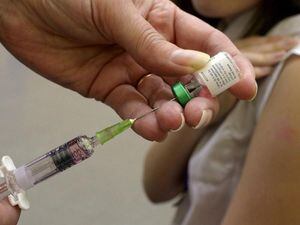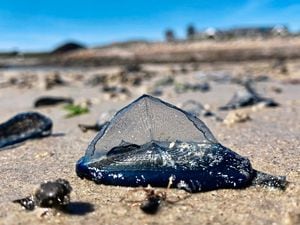Boys to be offered free HPV vaccinations
BOYS in the bailiwick are now being offered free HPV vaccinations to help protect them against a number of cancers.

A UK-wide immunisation scheme for girls aged 12 and 13 has been in operation in the island since 2008 and now the scheme has also been introduced for 12- and 13-year-old boys after a review by the UK government on the benefits of the vaccine.
Health protection nurse Jo Rocha said the free vaccine was due to start to be given to boys this school term.
‘The programme will be delivered by the school nurses team, at school, running along with other well-established programmes, including HPV for girls,’ she said.
‘The school nurses deliver different programmes during the academic year, starting with flu vaccination for primary school children. HPV vaccine is scheduled to be provided from January.
‘The HPV vaccine was introduced 11 years ago to prevent cervical cancers related with some types of HPV virus.’
The vaccine, which is known to help protect against cancers caused by the human papillomavirus, including cervical cancer, some mouth and throat cancers and some cancers of the anal and genital areas, was initially available only to girls.
However, the service has now been introduced to boys on the basis of a review by the joint committee on vaccination and immunisation.
It had initially stated in 2017 that extending the HPV programme to adolescent boys would not be a cost-effective use of health service resources in the UK setting, but, after further analyses, boys were shown to benefit from receiving it.
‘Over the years several studies were conducted and evidence showed that HPV virus was also associated with other types of cancer that could also affect men, namely anal cancers and cancers of the neck and head,’ added Ms Rocha.
‘Based on these findings, Public Health England agreed to fund the extension of the programme for boys, offering vaccinated children the best possible protection against these preventable forms of infections and cancer.
‘Guernsey follows PHE guidance and changes implemented to the UK routine vaccination schedule are usually mirrored locally in real time.’
Estimates from the University of Warwick suggest the vaccine, which protects against HPV, will prevent 64,138 cervical cancers and 49,649 non-cervical cancers in the UK by 2058.
This will include 3,433 cases of penile cancer and 21,395 cases of head and neck cancer, such as throat cancer, in men.
Giving boys the jab also protects girls from HPV, which is passed on through sexual contact.
Children will be offered two doses about six to twelve months apart, which are both needed for the vaccine to be effective.





